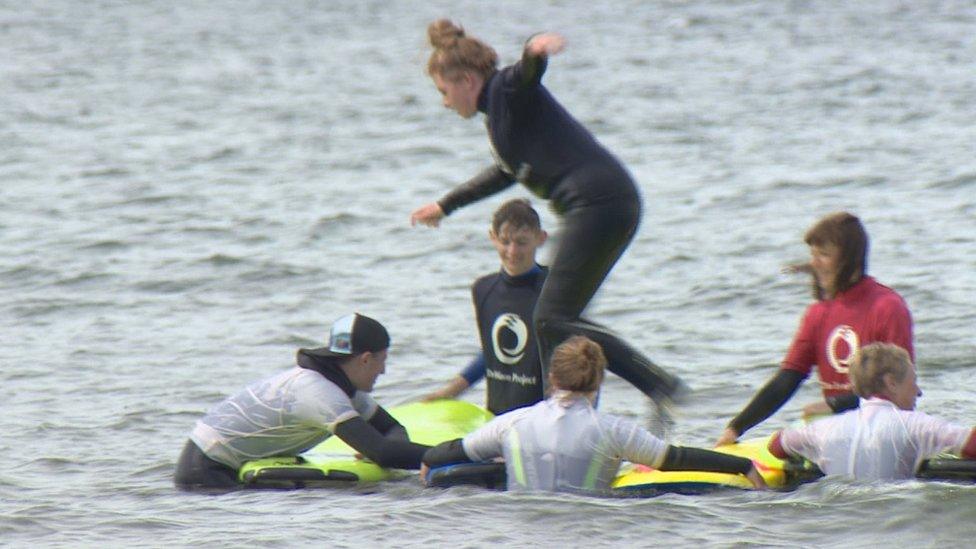The student studying the healing power of surfing
- Published
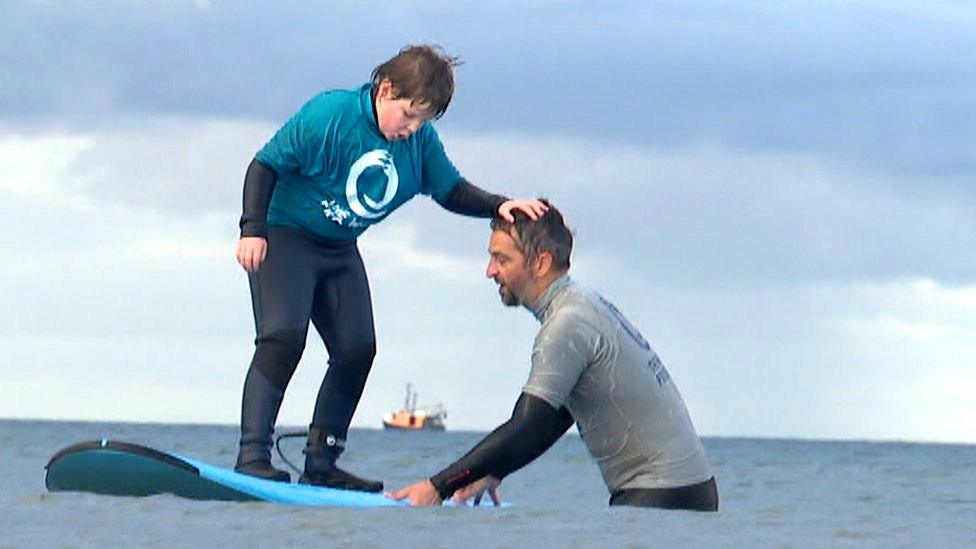
Jamie Marshall says his PhD from Edinburgh's Napier University is the first in the world focused on "surf therapy''.
He has spent the past four years studying what he says are the healing powers of surfing.
"When you are trying to stand up on that board there is nothing else in the world," Jamie says.
"I had a US marine tell me that when he was out on the water surfing it was the only time in his life he could guarantee he wasn't going to experience a flashback associated with PTSD."
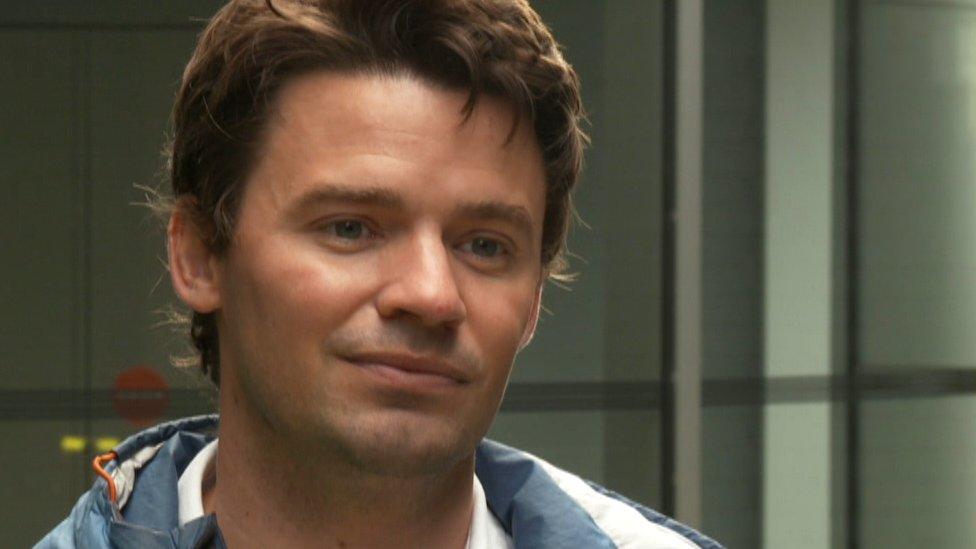
Jamie Marshall has spent the past four years studying what he says are the healing powers of surfing
According to Jamie the same effect can be seen across the world in different populations - the focus demanded by an activity such as surfing seems to help people deal with symptoms related to mental health issues.
At Belhaven beach in East Lothian, there were several surf groups out on the water on an October afternoon.
The one run by charity Wave Project seeks to help young people with a range of mental and emotional challenges.
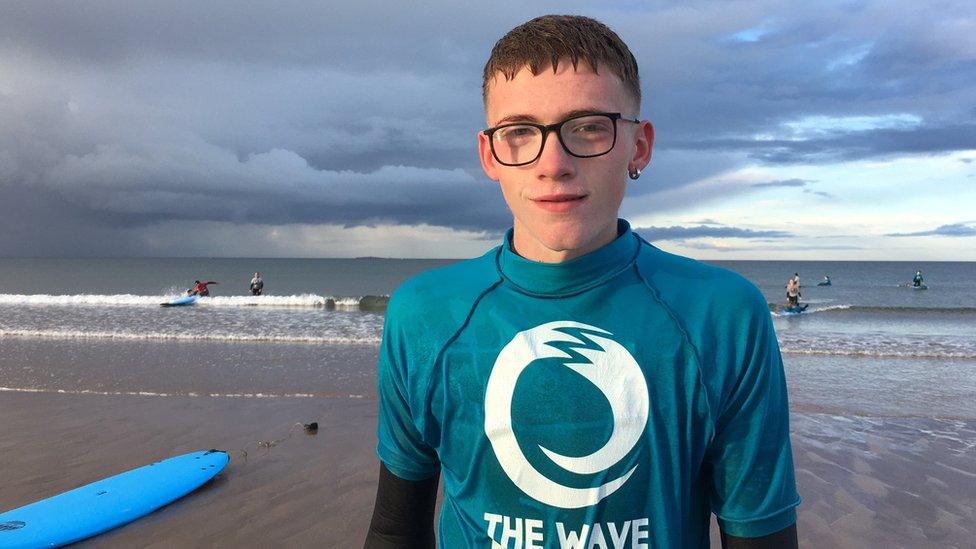
Kacee says he had thought he would not be able to do it
Sixteen-year-old Kacee was referred by his social worker to try to build his confidence.
He says: "Before, I thought I could not do it and I thought it'd be very difficult but now I've realised it is quite easy.
"If you put your mind to something you can really achieve a lot.''
Kacee is an active young person but can experience high levels of anxiety due to autism.
He says lockdown had been hard for him, especially not being able to see friends.
"It's been quite difficult just not talking to people and this made a big difference in my social wellbeing and my anxiety," Kacee says.
Wave Project is expanding to try to meet demand, doubling the number of courses offered.
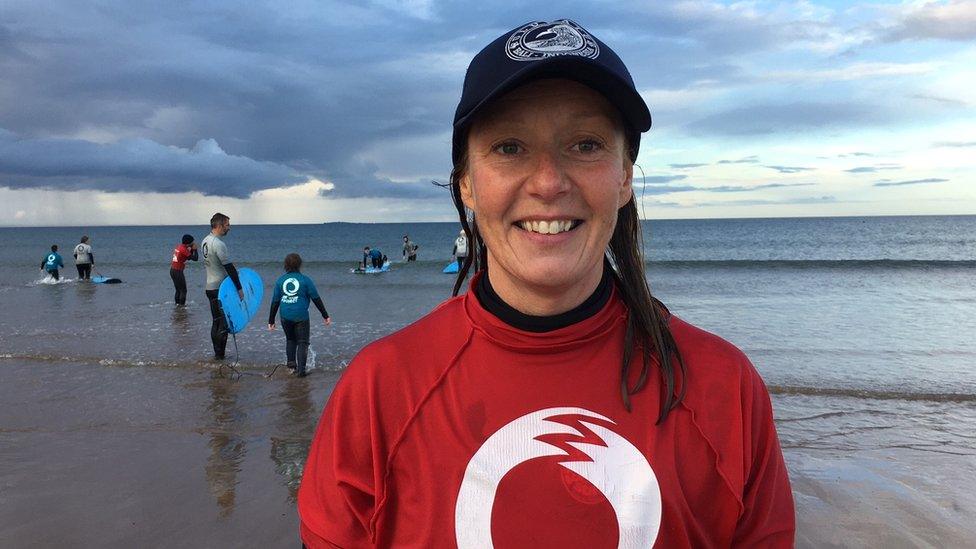
Wave Project Scotland coordinator Alison Young
Former nurse Alison Young, the charity's coordinator in Scotland, says they can't keep up with demand as more and more services refer young people to them from across the central belt.
Alison says: "They learn it's ok. It's hard. They fall off, they get back on and they learn that if you keep trying you'll get there in the end."
She says it is a "safe space" and there is one-to-one mentorship so even in areas where there is not great surf it can still have a positive impact on wellbeing by showing they can cope.
PhD student Jamie Marshall says: "I think people see surfers as guys who just smoke pot or sit in a car park and don't want to do any real work but actually there are a lot of organisations around the world really harnessing surfing as a vehicle for good in mental health, physical health and societal change."
He says one of the key things he found while doing the PhD was that surf therapy was providing safe spaces for vulnerable people.
This is not just physical safe spaces, he says, but also emotional safe spaces where people are free to be themselves and to talk about how they are feeling.
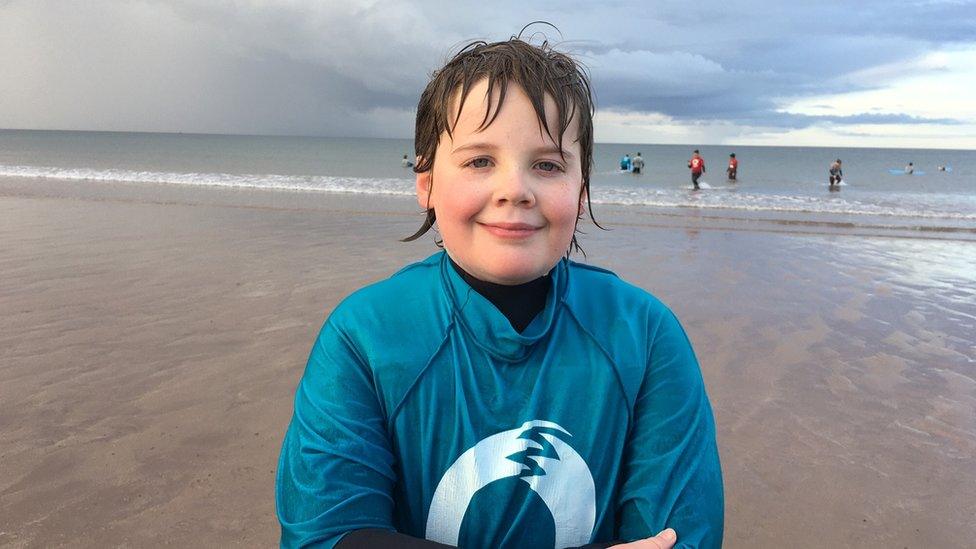
Archie says he feels brave in the rough waters
Nine-year-old Archie was referred to Wave Project by a nurse after losing his dad to cancer last year.
It was hoped surf therapy would provide an outlet for his grief and encourage some social interaction with his peers.
He says he feels "brave" to go inside the rough water and enjoys being outside a lot more.
He says the most important advice he has received is "just keep practising and you're going to be a natural".
Related topics
- Published28 June 2018
